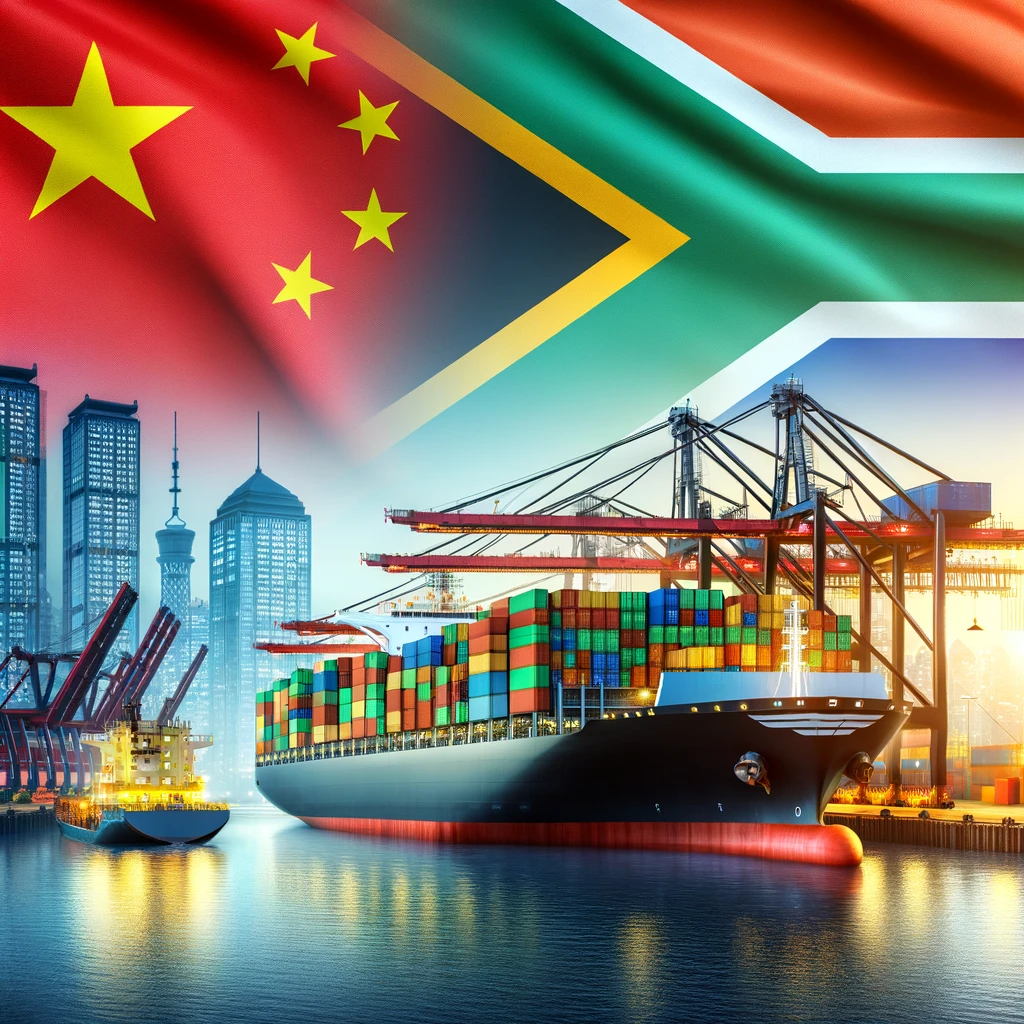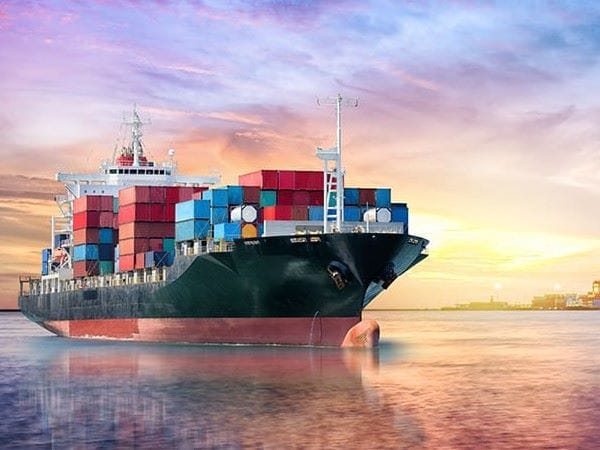The steady growth of commodity trade between China and South Africa has driven the logistics needs of the two countries. Container transportation is the first choice for international transportation. In order to help companies or individuals understand the basic situation of container transportation, this article will introduce the cost of shipping different containers from China to South Africa in detail.

Introduction to Containers
Containers are standardized means of transportation and are widely used in global shipping. Containers are divided into two common specifications, 20ft and 40ft, which provide a closed transportation environment for goods, thereby reducing losses and ensuring the safety of goods. Common types of containers are:
- 20-foot standard container: suitable for small and medium-sized goods, with a load capacity of generally 21 tons and a volume of about 33 cubic meters.
- 40-foot standard container: larger capacity, with a load capacity of generally 27 tons and a volume of about 67 cubic meters.
Container Shipping from China to South Africa
Located at the southern tip of Africa, South Africa has a very important geographical location and has many strategic ports and transportation hubs. Major ports include Cape Town, Durban and Elizabeth, which are important gateways to African and global markets.
Ocean freight is usually the most economical option for international transportation, especially for bulk commodities and large quantities of goods, which can effectively reduce the unit transportation cost. Container ships can transport large amounts of goods and are suitable for long-distance trade, but the transportation time is long, generally taking 30-40 days.
Cost of Shipping 20ft and 40ft Containers from China to South Africa
The cost of transporting containers from China to South Africa is mainly composed of the following parts:
- Basic ocean freight: It is the core part of the total cost and is priced according to factors such as container specifications and voyage.
- Fuel surcharge (BAF): It is used to offset the cost changes caused by oil price fluctuations and fluctuates according to the route and current oil prices.
- Port charges: It includes loading and unloading fees, terminal usage fees, etc. at the port of departure and the port of destination.
- Customs clearance fees: It is used for the necessary procedures for customs clearance of exports from China and imports from South Africa. The fees vary depending on the type of goods and the complexity of customs clearance.
- Insurance costs: It is usually charged at a certain percentage of the value of the goods to protect the goods from loss during transportation.
Below is the cost range for 20ft and 40ft containers from China to South Africa for a few cases, but since shipping prices change all the time, please contact Ubest Shipping and we will get back to you within 24 hours!
| POL (port of loading) | POD (port of discharge) | 20ft container cost | 40ft container cost |
|---|---|---|---|
| Shanghai | Cape Town | $2550-$3450 | $3000-$4800 |
| Shenzhen | Cape Town | $2500-$3600 | $3150-$4750 |
| Qingdao | Cape Town | $2550-$3750 | $3050-$4750 |
| Ningbo | Cape Town | $2650-$3700 | $3150-$4650 |
| Shanghai | Durban | $2750-$3450 | $3050-$4800 |
| Shenzhen | Durban | $2700-$3700 | $3100-$4700 |
| Qingdao | Durban | $2650-$3850 | $3050-$4750 |
| Ningbo | Durban | $2800-$3550 | $3050-$4850 |
| Shanghai | Elizabeth | $2850-$3750 | $3150-$4750 |
| Shenzhen | Elizabeth | $2750-$3450 | $3100-$4600 |
| Qingdao | Elizabeth | $2600-$3700 | $3000-$4800 |
| Ningbo | Elizabeth | $2850-$3700 | $3050-$4850 |
If you want to know the container shipping prices in the surrounding areas:
- Shipping Costs for 20ft And 40ft Containers from China to Iraq
- Cost of Shipping 20ft and 40ft Containers from China to Qatar
- Cost of 20ft and 40ft Container Shipping From China To Kuwait
- Shipping Costs for 20ft And 40ft Containers from China to UAE
- Cost of Shipping 20ft & 40ft Containers from China to Egypt
- Cost of Shipping 20FT and 40FT Containers from China to Israel
- Cost of Shipping 20ft and 40ft Containers from China to Iran
- Cost of Shipping 20ft and 40ft Containers from China to Jordan
- Cost of Shipping 20ft and 40ft Containers from China to Saudi Arabia

Factors Affecting the Cost of Shipping from China to South Africa
The cost of shipping containers from China to South Africa is also affected by a variety of factors:
- Seasonal fluctuations: Prices will rise during peak shipping seasons (such as around Chinese New Year and international holidays), and freight rates will be relatively stable during off-seasons.
- Cargo type and weight: Dangerous goods or goods that require special containers for transportation are more expensive, and heavy goods will also increase freight costs.
- Oil price fluctuations: Fuel surcharges will be adjusted according to changes in international oil prices, which will affect transportation costs.
- Destination port selection: Different South African ports have slightly different charging standards for container handling fees. Choosing the most suitable destination port can effectively reduce costs.
Reduce Container Costs from China to South Africa
To reduce the cost of container shipping from China to South Africa, you can start from the following aspects:
Plan the shipping time reasonably
Avoid peak seasons, such as Chinese holidays (Spring Festival, National Day) and international holiday peak seasons (such as Christmas). Freight rates usually rise during peak seasons due to increased demand. Book in advance. Usually, the shipping costs of booking in advance will be lower than those of shipping close to the time of shipment.
Choose the right port
Shipping costs from major ports in China (such as Shanghai and Shenzhen) may be more competitive because these ports have more routes and more ship options. You can choose larger ports (such as Durban Port) because these ports have stronger handling capacity and generally lower costs.
Work with freight forwarders
Compare quotes from different freight forwarders and find a freight forwarder with suitable prices and good services. Consider long-term cooperation and establish a good cooperative relationship, which may get better discounts and priority services.
Reduce additional costs
Understand all possible costs and try to avoid unnecessary costs, such as additional port fees and storage fees.
Container loading optimization
Ensure that containers are fully utilized and reduce empty loads. Reasonably arrange the loading of goods to maximize the space utilization of containers.
Customs Clearance Documents for Container Shipping from China to South Africa
To ensure that the goods are legally imported and comply with relevant South African regulations, the following customs clearance documents are required for containers shipped from China to South Africa:
- Commercial invoice: a formal transaction record of the goods, used for tariff assessment.
- Packing list: a detailed list of the contents, quantity, weight and dimensions of the goods in each container.
- Bill of lading: a shipping document for goods that proves that the goods have been loaded on the ship and are ready for transportation.
- Certificate of origin: indicates the country or place of manufacture of the goods, which is very important for determining tariffs and trade agreements.
- Import license: for certain controlled goods, an import license from the South African government may be required. Insurance document: used to prove to South African customs that the goods are insured in case of accidents during transportation.
The cost of shipping containers from China to South Africa depends on a variety of factors. By using the various strategies in this article and understanding South Africa’s import requirements, companies can more effectively control transportation costs and get their goods to South Africa more efficiently.
